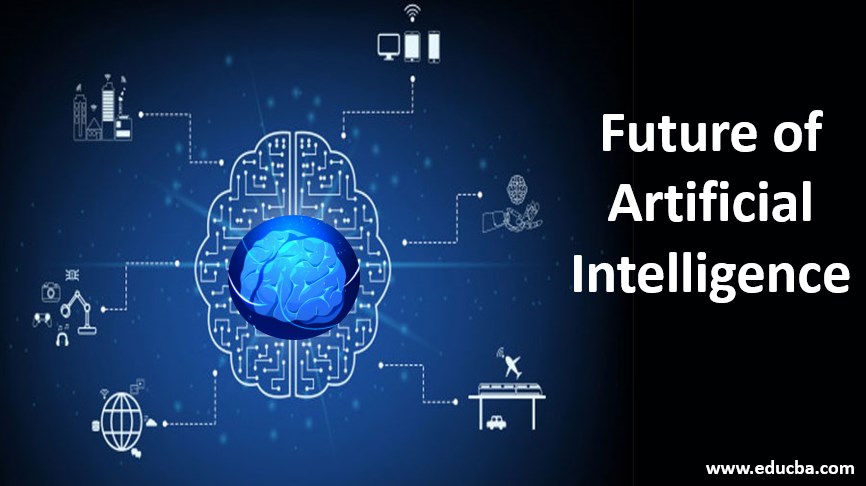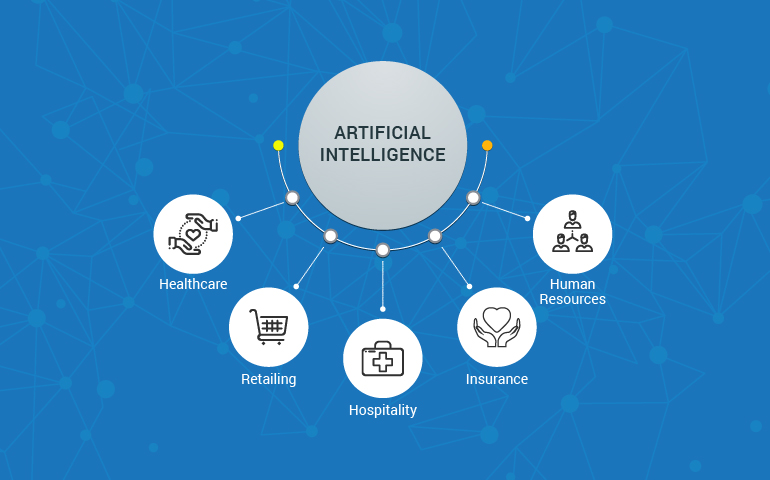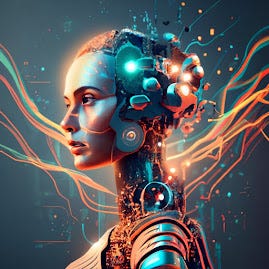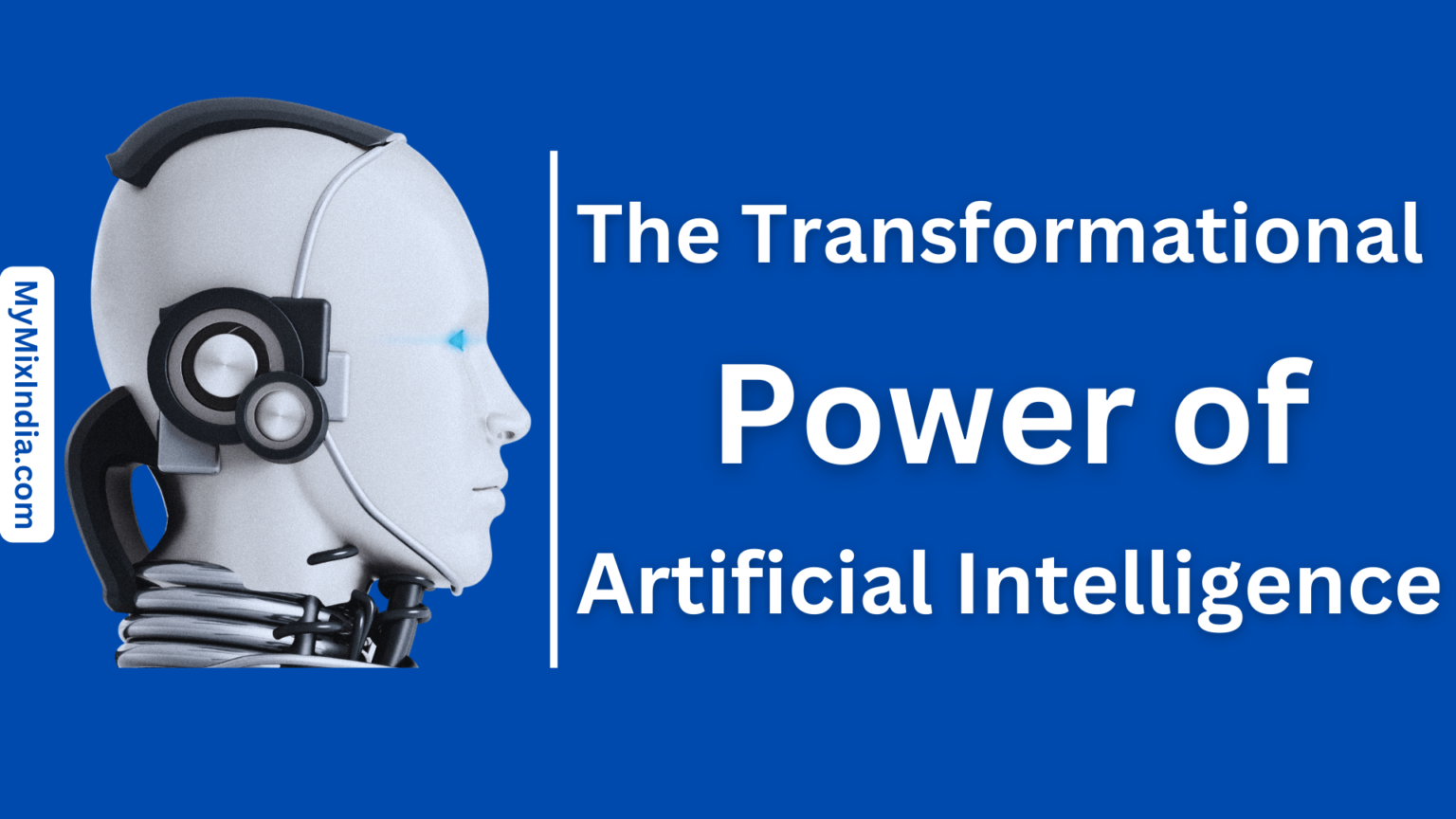The Transformative Power of Advanced AI: A Look at 2025
The Transformative Power of Advanced AI: A Look at 2025
Introduction
With great pleasure, we will explore the intriguing topic related to The Transformative Power of Advanced AI: A Look at 2025. Let’s weave interesting information and offer fresh perspectives to the readers.
Table of Content

The Transformative Power of Advanced AI: A Look at 2025
The year 2025 is anticipated to be a watershed moment in the evolution of artificial intelligence (AI). This period will witness the widespread adoption and integration of AI across various sectors, impacting how we live, work, and interact with the world around us. While the exact trajectory of this transformation is subject to constant evolution, certain key areas are poised to experience significant advancements, ushering in a new era of possibilities.
Revolutionizing Industries with AI:
AI’s transformative potential is already being felt in numerous industries. From healthcare to finance, manufacturing to transportation, AI is being harnessed to optimize processes, enhance efficiency, and deliver novel solutions.
- Healthcare: AI is revolutionizing healthcare by enabling faster and more accurate diagnoses, personalized treatment plans, and the development of new drugs and therapies. AI-powered systems are analyzing vast amounts of medical data to identify patterns and predict disease progression, leading to earlier interventions and improved patient outcomes.
- Finance: AI is transforming the financial sector by automating tasks, detecting fraud, and providing personalized financial advice. AI-powered algorithms are analyzing market trends, predicting investment opportunities, and streamlining financial operations, leading to greater efficiency and reduced costs.
- Manufacturing: AI is driving innovation in manufacturing by optimizing production processes, reducing waste, and improving quality control. AI-powered robots are automating tasks, enabling faster production cycles and increased productivity.
- Transportation: AI is shaping the future of transportation by enabling self-driving cars, optimizing traffic flow, and enhancing logistics. AI-powered systems are analyzing real-time data to improve safety, efficiency, and sustainability in the transportation sector.
The Rise of Intelligent Automation:
One of the key trends driving the AI revolution is the rise of intelligent automation. AI-powered systems are automating tasks that were previously performed by humans, freeing up human workers to focus on higher-level tasks that require creativity, critical thinking, and emotional intelligence.
- Customer Service: AI-powered chatbots and virtual assistants are providing 24/7 customer support, handling routine inquiries and resolving issues quickly and efficiently.
- Data Entry and Processing: AI systems are automating data entry and processing tasks, reducing errors and improving accuracy.
- Financial Analysis: AI is automating financial analysis tasks, such as financial reporting and risk assessment.
The Ethical Implications of AI:
As AI becomes increasingly integrated into our lives, it is crucial to address the ethical implications of its use. Concerns regarding bias, privacy, and job displacement are all important considerations.
- Bias: AI systems can inherit biases from the data they are trained on, leading to unfair or discriminatory outcomes. It is essential to ensure that AI systems are trained on diverse and representative datasets to mitigate bias.
- Privacy: AI systems collect and analyze vast amounts of personal data, raising concerns about privacy and data security. It is important to establish clear guidelines and regulations to protect personal data and ensure its responsible use.
- Job Displacement: As AI automates tasks previously performed by humans, concerns arise about job displacement. It is crucial to invest in education and training programs to equip workers with the skills needed to thrive in the AI-powered economy.
Navigating the Future of AI:
The future of AI is full of possibilities and challenges. To ensure that AI is used for good, it is essential to:
- Promote responsible AI development: Encourage the development of ethical guidelines and regulations for AI.
- Invest in AI education and training: Equip workers with the skills needed to thrive in the AI-powered economy.
- Foster collaboration and innovation: Encourage collaboration between industry, academia, and government to advance AI research and development.
FAQs:
-
What is the difference between AI and machine learning?
AI is a broad term that encompasses a range of technologies, including machine learning. Machine learning is a subset of AI that focuses on training computers to learn from data without explicit programming. -
What are the potential benefits of AI?
AI has the potential to improve efficiency, productivity, and quality of life in various sectors. AI can automate tasks, provide personalized experiences, and drive innovation. -
What are the potential risks of AI?
AI poses potential risks related to bias, privacy, job displacement, and the misuse of AI for malicious purposes. -
How can we ensure that AI is used ethically?
It is essential to develop ethical guidelines and regulations for AI, promote responsible AI development, and educate the public about the potential benefits and risks of AI.
Tips for navigating the AI revolution:
- Stay informed: Stay abreast of the latest advancements and trends in AI.
- Develop AI skills: Upskill and reskill to adapt to the changing job market.
- Embrace AI tools and technologies: Leverage AI tools to enhance your work and personal life.
- Engage in ethical discussions: Participate in discussions about the ethical implications of AI.
Conclusion:
The year 2025 marks a pivotal moment in the evolution of AI. This period will witness the widespread adoption and integration of AI across various sectors, transforming how we live, work, and interact with the world. As we navigate this exciting and transformative era, it is crucial to prioritize responsible AI development, invest in education and training, and foster collaboration and innovation to harness the full potential of AI for the benefit of all.








Closure
Thus, we hope this article has provided valuable insights into The Transformative Power of Advanced AI: A Look at 2025. We appreciate your attention to our article. See you in our next article!